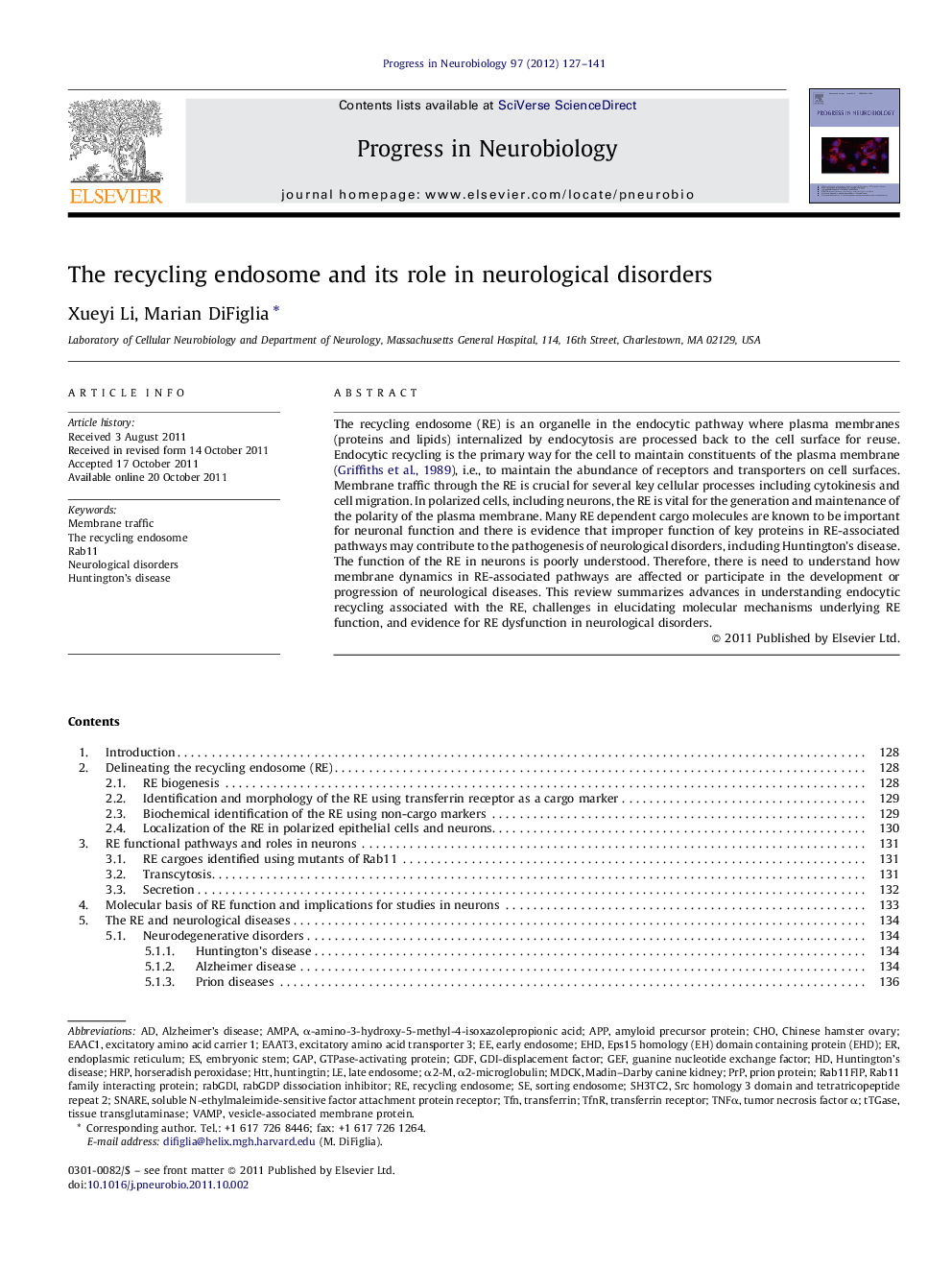| Article ID | Journal | Published Year | Pages | File Type |
|---|---|---|---|---|
| 6286594 | Progress in Neurobiology | 2012 | 15 Pages |
The recycling endosome (RE) is an organelle in the endocytic pathway where plasma membranes (proteins and lipids) internalized by endocytosis are processed back to the cell surface for reuse. Endocytic recycling is the primary way for the cell to maintain constituents of the plasma membrane (Griffiths et al., 1989), i.e., to maintain the abundance of receptors and transporters on cell surfaces. Membrane traffic through the RE is crucial for several key cellular processes including cytokinesis and cell migration. In polarized cells, including neurons, the RE is vital for the generation and maintenance of the polarity of the plasma membrane. Many RE dependent cargo molecules are known to be important for neuronal function and there is evidence that improper function of key proteins in RE-associated pathways may contribute to the pathogenesis of neurological disorders, including Huntington's disease. The function of the RE in neurons is poorly understood. Therefore, there is need to understand how membrane dynamics in RE-associated pathways are affected or participate in the development or progression of neurological diseases. This review summarizes advances in understanding endocytic recycling associated with the RE, challenges in elucidating molecular mechanisms underlying RE function, and evidence for RE dysfunction in neurological disorders.
⺠Cargoes trafficked via recycling endosomes control vital physiological processes. ⺠The GTPase Rab11 regulates membrane dynamics at the recycling endosome. ⺠Improper function of Rab11 and its effectors underlies neurological disorders.
